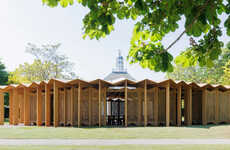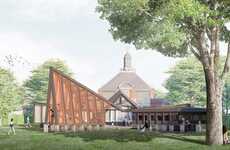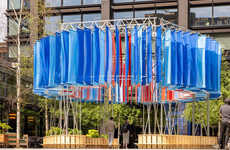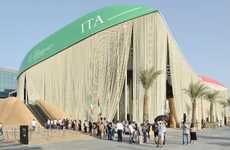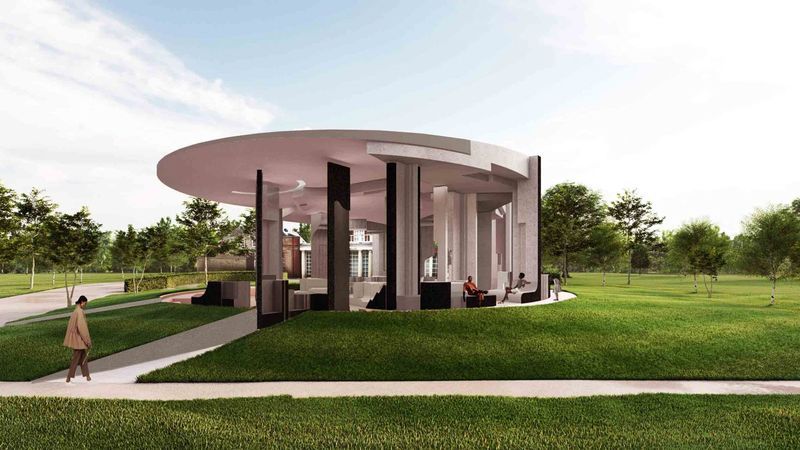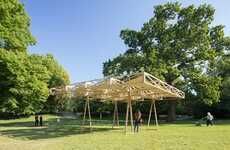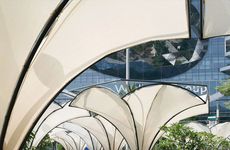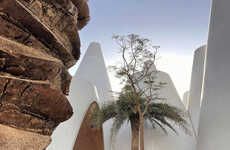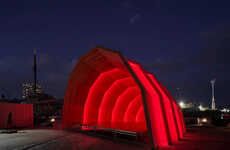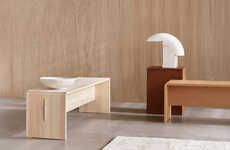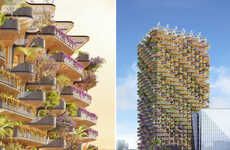
The 2020 Serpentine Pavilions Will Be Designed by Counterspace
References: counterspace-studio & dezeen
South African architecture firm Counterspace is commissioned with constructing the 2020 Serpentine Pavilion. The structure will not only be progressive in the topic that it chooses to address, but also in the material that it will use. Counterspace decided to dedicate the 2020 Serpentine Pavilion to "the experiences of London's migrant communities." This will be communicated through different shapes, textures, and gradients, which posses symbolic value. The 2020 Serpentine Pavilion will also boast "movable elements" that will allow it to be "taken and put on display in different neighborhoods."
The structure will consist of two main materials, both with claims on sustainability. The first one will be cork, which is sourced from Portuguese producer Amorim and the second one will be K-Briq modules. The latter relies on new technology by Kenoteq which creates bricks using "90 percent recycled construction and demolition waste."
Image Credit: Dezeen
The structure will consist of two main materials, both with claims on sustainability. The first one will be cork, which is sourced from Portuguese producer Amorim and the second one will be K-Briq modules. The latter relies on new technology by Kenoteq which creates bricks using "90 percent recycled construction and demolition waste."
Image Credit: Dezeen
Trend Themes
1. Recycled Materials - Opportunity for innovators to develop new ways of using recycled materials in architecture and construction.
2. Symbolic Design - Opportunity to incorporate symbolism and cultural significance into architectural designs.
3. Movable Structures - Opportunity to create adaptable and portable architectural structures that can be displayed in different locations.
Industry Implications
1. Architecture - Architecture firms can explore sustainable construction methods and incorporate cultural elements into their designs.
2. Construction - Construction companies can adopt innovative technologies that use recycled materials and prioritize sustainability.
3. Art and Design - Artists and designers can use architectural structures as a medium to convey cultural narratives and promote social inclusion.
6.3
Score
Popularity
Activity
Freshness


